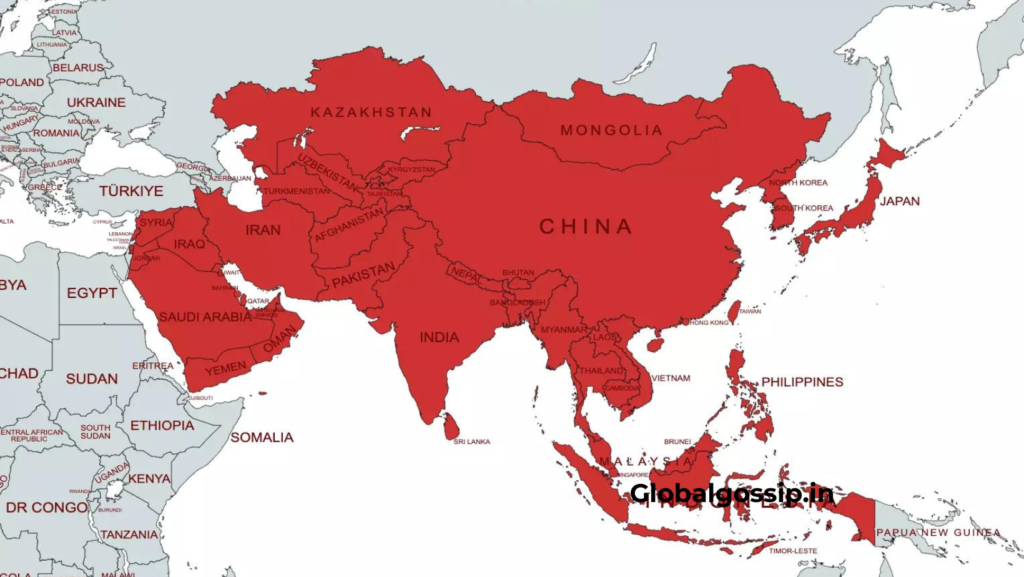Against the backdrop of a rapidly evolving sporting landscape, the 19th Asian Games also known as the 2023 Asian Games (originally scheduled to take place in sep,2022 were postponed to 2023 due to Covid-19 pandemic) have already kicked off in grand fashion in Hangzhou, China. Where athletes from across the continent are vying for glory in various sports, it’s the perfect time to reflect upon the rich history, evolution, and profound significance of this monumental sporting event.

The Asian Games, also known as the Asiad, represent a multi-sport event that brings together athletes from across the Asian continent. Since its inception in 1951, the Asian Games have grown in prominence, size and significance, making them one of the most important sporting events in the world.
Let’s explore the evolution and significance of the this tournament, shedding light on its rich history, cultural impact, and the remarkable achievements of athletes who have graced this grand stage.
Table of Contents
A Brief History
The idea of the Asian Games was first proposed by Guru Dutt Sondhi, an Indian sports official, during the 1948 London Olympics. His vision was to promote goodwill and understanding among Asian nations through the medium of sports. The concept was well-received, leading to the formation of the Asian Games Federation in 1949. This federation paved the way for the inaugural Asian Games, which were held in New Delhi, India, in 1951.
The inaugural edition of the Asian Games featured 11 countries and over 490 athletes competing in six sports: athletics, aquatics, basketball, cycling, football, and weightlifting. The event was a resounding success, showcasing the potential for unity and friendly competition among Asian nations.
Well in 2023, 19th Asian Games, 45 countries are competing in 40 sports. It has come a really long way.
Delve deeper
Certainly, let’s delve deeper into some of the key aspects of this championship, including its role in promoting sports, cultural exchange, and its impact on participating nations.
Promoting Sports Excellence
The Asian Games have been instrumental in promoting sports excellence across the continent. The competition provides a platform for athletes to showcase their talents and compete at the highest level. Many Asian countries have recognized the importance of excelling at the Asian Games as a stepping stone to success on the global stage, particularly at the Olympics.
Countries like China, Japan, South Korea, and India have invested heavily in sports infrastructure, coaching, and athlete development programs to enhance their performance at the Asian Games. As a result, Asian athletes have consistently delivered exceptional performances in various disciplines, earning accolades and medals at the Olympics and other international competitions.
Cultural Exchange and Diplomacy
The Asian Games go beyond the realm of sports; they serve as a powerful tool for cultural exchange and diplomacy. During the opening and closing ceremonies, as well as through various cultural events and exhibitions, participating nations have the opportunity to showcase their unique traditions, art, music, and cuisine. This cultural exchange fosters greater understanding and appreciation among people from diverse backgrounds.
Moreover, the Games often provide a forum for diplomatic initiatives and discussions among Asian leaders. It’s not uncommon for political leaders to use the championship as an opportunity to engage in bilateral and multilateral dialogues, promoting cooperation and peaceful relations among nations.
Economic Impact

Hosting the Asian Games can have a significant economic impact on the host city and country. The event attracts thousands of athletes, officials, spectators, and media personnel, leading to increased tourism, hotel occupancy, and spending on local businesses. Infrastructure development, including the construction of stadiums and transportation networks, also stimulates economic growth and job creation.
For example, when South Korea hosted the 1986 Asian Games in Seoul, it marked a turning point in the country’s economic development. The extensive infrastructure investments made for the Games contributed to South Korea’s transformation into a major global economic player.
Challenges and Controversies

While this championship have brought numerous benefits to the region, it has also faced challenges and controversies. Some countries have criticized the organization, citing issues related to doping, uneven representation in sports, and political disputes. Additionally, the cost of hosting the Games can be substantial, and some host cities have grappled with financial burdens after the event concludes.
Efforts are continuously made to address these challenges, with a focus on promoting clean and fair competition, improving representation, and ensuring the long-term sustainability of host cities’ investments.
Looking Ahead
As the Asian Games continue to evolve, they remain a symbol of Asia’s growing prominence in the world of sports and culture. With each edition, the Games inspire athletes to strive for greatness, nations to come together in the spirit of friendly competition, and cultures to connect on a global stage.
The future of this championship holds promise, with ongoing efforts to enhance the quality of competition, promote sports for all, and strengthen the bonds of friendship and cooperation among Asian nations. As we celebrate the evolution and significance of the Asian Games, we eagerly anticipate the exciting moments and achievements that lie ahead in this remarkable journey of athleticism, unity, and cultural exchange.
Evolution of the Asian Games
Over the years, these games have evolved significantly in terms of scale, scope, and organization. Here are some key milestones in the evolution of the Asian Games:

- Expansion of Sports: One of the most significant changes in the Asian Games has been the expansion of sports. The number of sports featured in the Games has grown steadily over the years, encompassing a wide range of disciplines, from traditional Asian sports like kabaddi to modern sports like tennis and golf.
- Participation: The Asian Games have witnessed a steady increase in the number of participating countries and athletes. What began as a small gathering of 11 nations in 1951 has grown into an event with over 45 countries and thousands of athletes competing.
- Infrastructure and Facilities: Host cities have invested heavily in infrastructure and facilities to meet the growing demands of the Asian Games. State-of-the-art stadiums, sports complexes, and athlete villages have become standard features of the event.
- Television Coverage: This championship have gained global recognition through extensive television coverage. This exposure has not only popularized the Games but also provided a platform for athletes to showcase their talents to a worldwide audience.
- Cultural Exchange: Beyond sports, the tournament promotes cultural exchange among participating nations. Cultural programs, exhibitions, and events showcase the rich diversity of Asian cultures, fostering mutual respect and understanding.
Significance of the Asian Games
The Asian Games hold immense significance for various reasons:
- Promotion of Peace and Unity: The Asian Games embody the spirit of cooperation and friendship among Asian nations. In a region often marked by political tensions, the Games provide a platform where athletes can set aside differences and compete in the spirit of fair play.
- Development of Sports: The Games have played a pivotal role in the development of sports in Asia. Many nations have invested in sports infrastructure and training programs to compete at the highest level, resulting in a surge in the overall sporting standard in the continent.
- Global Recognition: As mentioned earlier, the Asian Games have gained global recognition, making them an important event on the international sporting calendar. Athletes who perform well in the Asian Games often go on to achieve success in other prestigious competitions, including the Olympics.
- Cultural Exchange: The Games serve as a melting pot of cultures, allowing athletes and spectators to experience the diverse traditions, customs, and cuisines of Asian nations. This cultural exchange fosters greater understanding and appreciation among people from different backgrounds.
- Inspiration for Future Generations: The achievements of athletes at the Asian Games inspire future generations to pursue excellence in sports. Many Asian countries have produced world-class athletes who attribute their success to the motivation they drew from competing in the Asian Games.
Historical Moments and Athletes
The history of the Asian Games is replete with memorable moments and outstanding athletes who have left an indelible mark on the sporting world. Here are a few of them:
- Milkha Singh: The Flying Sikh from India won gold medals in the 200m and 400m races at the 1958 Tokyo Asian Games, catapulting him to international fame.
- Nawal El Moutawakel: The Moroccan hurdler became the first woman from an Arab or Islamic nation to win an Olympic gold medal when she triumphed in the 400m hurdles at the 1984 Los Angeles Olympics, following her success at the Asian Games.
- Ichiro Ogimura: The Japanese table tennis legend dominated the sport, winning multiple gold medals at the Asian Games and setting a standard for excellence.
- Li Ning: The Chinese gymnast made history by winning six medals, including three golds, at the 1982 New Delhi Asian Games, and later founded his successful sports brand.
- Dipa Karmakar: The Indian gymnast made headlines with her daring vaults at the 2014 Incheon Asian Games, showcasing the potential for excellence in non-traditional sports.
Conclusion
The Asian Games have come a long way since their inception in 1951, evolving into a monumental sporting event that celebrates athletic excellence, cultural diversity, and the spirit of unity among Asian nations. With each edition, the Games continue to inspire athletes, foster international goodwill, and contribute to the growth and development of sports in Asia. As we look forward to future editions of the Asian Games, we can only anticipate more remarkable achievements and unforgettable moments on this grand stage of sporting excellence.
To follow 19th Asian Games, click here

